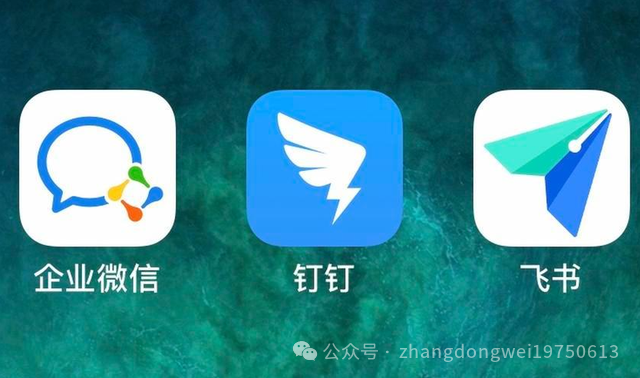Alibaba’s “Four Little Treasures”: What’s Their True Worth?
![]() 08/16 2024
08/16 2024
![]() 483
483
When one sows, one reaps. As Alibaba’s core businesses struggle, its once-marginal operations are thriving.
1688, Xianyu, DingTalk, and Quark have emerged as Alibaba Group’s new growth drivers, alongside Taobao and Alipay, forming the new “Alibaba Four Little Treasures”.
I. 1688: New Growth from an Old Tree

1688 is, in essence, Alibaba itself.
Alibaba originally used two domains: Alibaba.com.cn (internally known as the “Chinese Site”) and Alibaba.com (the “International Site”).
Alibaba’s Chinese Site, the predecessor to the 1688 platform, was primarily geared towards online transactions between domestic SMEs.
One source of revenue for the Chinese Site was selling “TrustPass”, essentially a license allowing companies to do business on Alibaba with a verified credibility rating. This service cost RMB 2,300 per year and accounted for 20%-30% of Alibaba’s revenue at the time.
In 2005, inspired by Baidu’s keyword bidding model, Alibaba introduced keyword bidding, which became a crucial revenue stream for e-commerce platforms.
Alibaba listed on the Hong Kong Stock Exchange in 2007 with the stock code 1688. In 2010, Alibaba’s Chinese Site was rebranded as “1688 Wholesale Network”, transitioning from an information platform to a transaction platform.
In 2012, Alibaba restructured its businesses into seven business groups, including Taobao, eTao, Tmall, Juhuasuan, Alibaba International, Alibaba Small Business (1688), and AliCloud, collectively known as the “Seven Swords”.
With the flattening of e-commerce services and the rise of platforms like Pinduoduo, the boundaries of Alibaba Small Business’s target market (small businesses, or “small B” in industry parlance) have become blurred.
On 1688, many manufacturers now offer dropshipping, effectively retailing. However, due to the platform’s positioning, 1688 cannot provide consumer-level pre- and post-sales services, hindering its reputation.
With Taobao and Pinduoduo focusing on consumer markets, 1688 has an opportunity to fill the gap. Pinduoduo relies heavily on industrial belt enterprises for its low prices, an area where 1688 is well-established. With adjustments to cater to the consumer market, 1688 could emerge as a formidable competitor to Pinduoduo.
However, whether Alibaba is willing to pivot 1688 fully towards the consumer market and embrace the significant internal changes that would entail remains uncertain.
What are your thoughts on this?
II. Xianyu: A Way of Life
In 2012, Alibaba launched “Taobao Secondhand” on its Taobao platform, the precursor to Xianyu. Xianyu’s success prompted Alibaba to see the potential in the secondhand goods market.
In 2014, “Taobao Secondhand” was rebranded as “Xianyu”, and the Xianyu app was launched, allowing users to sell their unwanted items without setting up a shop.
Younger generations, financially more secure, are learning to ignore brand premiums, focusing instead on value. Xianyu has become a haven for young people looking to save money.

On Xianyu, you can find almost anything except for prohibited items. Interesting finds include heavily discounted coupons, employee discounts, and parking coupons.
However, it’s advisable to avoid electronics and products requiring after-sales service due to the risk of counterfeits and difficulties in resolving disputes.
In the secondhand market, safety and trust are paramount. Xianyu has a solid foundation in transaction security, thanks to Alibaba’s infrastructure and Alipay, but improvements are needed to combat counterfeits.
Xianyu could consider introducing mandatory or optional authentication services based on item categories and transaction values, while enhancing its credit evaluation system to better suit the secondhand market.
Data is now a legal asset, and Xianyu’s investments in this direction are valuable. However, it’s crucial to avoid the pitfalls of over-expansion that have plagued other Alibaba ventures.
III. DingTalk: Turning Professionals into Tools
In the rivalry between Alibaba and Tencent, DingTalk emerged as Alibaba’s response to WeChat Work. DingTalk was launched in 2015, targeting the enterprise market with features like file sharing, read receipts, and group chats.
DingTalk’s open platform and enterprise service co-creation initiatives fueled its rapid growth. By the end of 2023, DingTalk had amassed 700 million users across 25 million organizations, including businesses and schools.
However, DingTalk now faces competition from ByteDance’s Feishu.

As an unemployed individual, I have limited experience with DingTalk. If you use DingTalk, please share your thoughts.
IV. Quark: The New Story of the Privileged
Quark, the fundamental particle, inspired Alibaba’s Quark browser, which innovates within established fields.
Launched in 2017, Quark browser offered a minimalist design free from ads and push notifications, quickly gaining popularity, especially among young users.
Quark gradually shifted its focus from browsing to search, positioning itself as a smart search engine. It also introduced a cloud storage service catering to young users’ video-sharing needs.

Quark is among the apps that young people in China refuse to uninstall, alongside WeChat and Pinduoduo. Leveraging Alibaba’s cloud and AI capabilities, Quark is expanding into areas like document scanning and PDF conversion.
Are you a Quark member?
Epilogue:

Under the leadership of Joseph Tsai and Simon Wu, Alibaba has implemented numerous reforms. While significant improvements in its core businesses may take time, the recent performance of its “Four Little Treasures” bodes well for Alibaba’s future value.
What are your thoughts? Please share them in the comments.
--------







